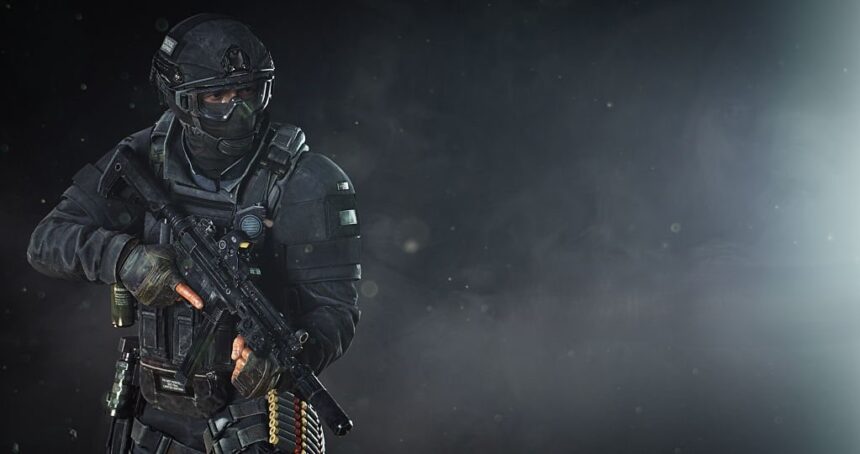1. What Is the R6 Marketplace?
If you’ve played Rainbow Six Siege for any amount of time, you’ve probably heard the term “R6 Marketplace.” It’s the online space where players trade, buy, or sell in-game items, accounts, and skins related to Tom Clancy’s Rainbow Six Siege. The idea behind it is simple: players who have extra or rare content can connect with others who want those items.
The R6 Marketplace has become a community hub — where serious gamers, collectors, and casual players meet to exchange digital goods. However, since Rainbow Six Siege doesn’t have an official in-game trading system, many of these marketplaces are third-party platforms. That’s why understanding how they work and how to stay safe is important before engaging in any deal.
2. Why the R6 Marketplace Exists
Many players spend years building their collections — from exclusive skins and operators to seasonal charms and rare weapon cosmetics. Some players move on to new games, while others want to buy specific items they missed during limited-time events. This demand gave rise to the R6 Marketplace.
It fills a gap the developers never officially addressed: allowing players to exchange value between themselves. Over time, these marketplaces have grown beyond item trading — they now include account sales, boosting services, and more. Still, the key is always trust and transparency, which we’ll explore in later sections.
3. How the R6 Marketplace Works
The mechanics of these marketplaces are fairly straightforward. Sellers list their items or accounts with detailed descriptions, prices, and sometimes screenshots for proof. Buyers browse listings, check ratings, and make offers. Once both sides agree, the platform facilitates the exchange through either direct payment systems or an escrow service to ensure both parties are protected.
Most reputable R6 marketplaces have verification systems to confirm account ownership before any sale is finalized. Some even use automated bots that handle item transfers securely. However, users should always confirm that the marketplace they’re using is legitimate before sharing personal or account details.
4. Common Items Traded on R6 Marketplaces
The most traded items include skins, weapon charms, uniforms, and elite sets — especially those that were released during exclusive events. Players also trade ranked-ready accounts that already have high-level operators unlocked.
Seasonal content often drives demand. For instance, a charm or skin that was available during a specific year may no longer be obtainable in-game. Collectors and long-term players value these items highly, which increases their resale value on third-party marketplaces. Knowing which items are worth something can make a big difference for both buyers and sellers.
5. The Popularity Surge in R6 Trading
Over the years, Rainbow Six Siege has grown from a tactical shooter into a competitive esports title with a dedicated fanbase. This expansion naturally influenced the secondary market. As players invest more time into the game, their attachment to digital content also increases.
Social media and streaming platforms have fueled this growth even more. Influencers showing off rare skins or elite outfits create demand among fans who want to own the same items. The R6 Marketplace is the result of this evolving player culture — one where digital prestige carries real value.
6. Legitimate vs. Risky Marketplaces
Not every platform advertising R6 items is trustworthy. Some websites operate without proper verification systems, leading to scams or fraudulent activity. That’s why it’s critical to identify legitimate marketplaces that prioritize safety.
Look for platforms that use escrow services, two-factor authentication, and verified seller programs. Reputable marketplaces also have visible customer support, refund policies, and clear transaction terms. Avoid sites that request your Ubisoft login directly — legitimate ones never do that. Your account information should remain private at all times.
7. Evaluating Trust and Safety in R6 Marketplaces
When it comes to trading digital items, trust is everything. Always check user reviews, community feedback, and independent ratings of any marketplace before you engage. Platforms that display transaction history and allow buyer-seller ratings usually have better credibility.
Additionally, many players rely on Discord groups and Reddit threads to verify whether a site is safe. These communities often share scam alerts and recommend reliable sources. Investing a few minutes in research can prevent costly mistakes later. In online marketplaces, prevention is always better than cure.
8. Pricing and Market Trends
Prices on R6 marketplaces fluctuate depending on rarity, demand, and current in-game trends. Limited-edition skins or event-specific charms can command a high price, especially if they’re linked to tournaments or seasonal themes. Conversely, common items or frequently available bundles usually sell for lower amounts.
Sellers often track current listings to set competitive prices, while buyers look for seasonal dips — like during sales or new game updates — to get better deals. Some marketplaces even provide historical data charts, helping users see how item values have changed over time. Treat it like a small economy: understanding trends helps you make smarter trades.
9. Legal and Ethical Considerations
Even though trading in-game items feels harmless, there are legal and ethical factors to consider. Ubisoft’s Terms of Service technically prohibit the sale or transfer of accounts. This means participating in certain marketplace activities can risk a ban if the transactions violate those terms.
However, not all marketplaces operate outside the rules. Some focus on cosmetics or collectibles without requiring access to your account. Others act as intermediaries rather than directly selling content. As a player, the safest route is always to understand Ubisoft’s policy and ensure your actions don’t breach it. Respecting the game’s integrity keeps the community healthy and enjoyable for everyone.
10. How to Avoid Scams on R6 Marketplaces
In any online trading space, scams can happen — and the R6 Marketplace is no exception. Scammers often lure players with offers that look too good to be true. They may promise rare skins or high-rank accounts at low prices, but once payment is made, the buyer never receives anything.
To protect yourself, use only trusted platforms with built-in payment protection and reputation systems. Always check the seller’s profile for reviews and history. Avoid private deals through direct messages or social media, as these are the most common channels for fraudulent activity. When possible, use escrow services, which hold your payment until both parties confirm the transaction was successful.
11. Best Practices for Safe Trading
Safety should always be your top priority. Start by separating your personal and gaming information. Never share your Ubisoft credentials or personal details with sellers. If a site or user requests access to your account directly, that’s a major red flag.
It’s also smart to use a dedicated payment method — such as PayPal or a prepaid card — rather than sharing your main credit card details. Check that the marketplace has secure HTTPS encryption before making any payment. Finally, document every transaction through screenshots and emails, so you have proof if anything goes wrong. These habits may seem small, but they make a big difference in protecting your gaming assets.
12. The Role of Community Feedback
One of the most reliable ways to judge a marketplace is by listening to other players. Forums, Discord servers, and Reddit threads are filled with active discussions about which sites are trustworthy and which ones to avoid. Communities are quick to flag suspicious platforms or dishonest sellers.
Some R6 marketplaces also allow user reviews and dispute systems, where buyers can report issues and request refunds. Platforms that respond quickly and handle disputes professionally tend to earn the most respect from players. A strong community presence often signals that the marketplace values fairness and transparency.
13. R6 Marketplaces and the Esports Influence
The rise of Rainbow Six Siege as a competitive esports title has influenced the trading scene significantly. Fans watching professional tournaments often look for cosmetic items worn by top players — leading to increased demand for those specific skins or charms.
In some cases, rare skins associated with major esports events become collector’s items. Marketplaces see sharp increases in their value following big tournaments. This trend highlights how the R6 Marketplace reflects the passion and loyalty of the gaming community. It’s not just about the visuals; it’s about owning a piece of the competitive legacy.
14. How Developers View Third-Party Trading
Ubisoft, the publisher of Rainbow Six Siege, has maintained a cautious stance toward third-party marketplaces. While they don’t directly support trading between players, they actively discourage unsafe practices that involve account sharing or black-market transactions.
That being said, many players still participate responsibly without violating the game’s rules. The key is awareness. As long as the trade doesn’t involve stolen or hacked accounts and doesn’t require account access, you’re less likely to face issues. It’s always best to read Ubisoft’s policy updates before engaging in trading activities.
15. The Future of R6 Marketplaces
The trading landscape continues to evolve. Some players believe Ubisoft may eventually introduce an official marketplace or trading system, similar to what other games have done. An official system could create safer, more transparent exchanges and reduce the risk of scams.
Until that happens, third-party R6 marketplaces will likely remain the go-to option. We may also see better verification technologies, including blockchain-based ownership proofs, to make trades more secure. As the game’s community grows, so does the need for trusted trading environments that protect both buyers and sellers.
16. Ethical Player-to-Player Trading
Beyond legality, ethics also play a big role in the R6 Marketplace. Fair trading practices — such as honest pricing, full disclosure of item details, and respecting others’ digital property — build a healthy community. Transparency matters more than quick profit.
Scamming someone out of a skin or account might seem like a small act, but it undermines the integrity of the entire player base. Ethical trading keeps the marketplace alive and builds trust that benefits everyone. As players, fostering this environment makes gaming more enjoyable for all involved.
17. Tips for New Traders
If you’re new to R6 trading, start small. Buy or sell low-value items first to learn how the system works. This approach minimizes risk while helping you gain experience with listing, negotiating, and completing trades.
Study how item pricing fluctuates and keep an eye on community discussions about new content drops or events. Timing is crucial — listing items when demand peaks can lead to better offers. Over time, you’ll gain the insight to make smarter, safer, and more profitable trades.
18. Conclusion
The R6 Marketplace is an ever-growing part of the Rainbow Six Siege experience. It connects players who want to trade digital assets, share value, and personalize their game in new ways. However, with that opportunity comes responsibility. Staying informed, using secure platforms, and practicing ethical trading are essential to keeping this community strong.
As the game continues to evolve, the marketplace will likely grow with it — shaped by technology, community feedback, and player demand. Whether you’re a casual collector or a dedicated trader, the key takeaway is clear: value your safety, respect other players, and engage thoughtfully in the R6 trading world.







